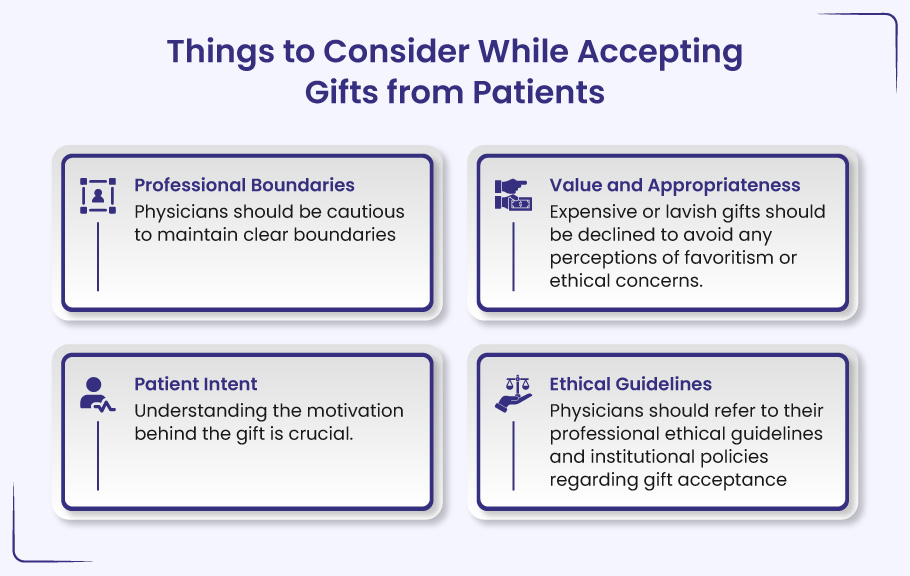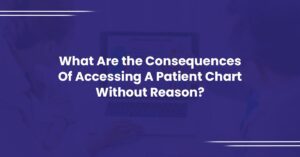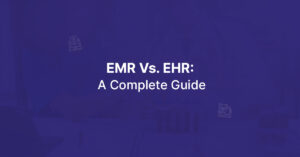Getting gifts from patients can be a tricky situation for healthcare providers. While a simple gesture of thanks, it can cloud professional judgement and strain the patient-provider relationship.
Sometimes, patients give small gifts to say thank you for the care they receive. Even though gifts are meant to be nice, they can sometimes impact the quality of care if healthcare providers start to favor the patients who give them more gifts. But saying ‘No’ to gifts might hurt the friendship between patients and doctors. Since there aren’t clear rules about getting gifts from patients, providers need to think about both sides.
This article will outline the pros and cons around accepting gifts, examining factors like the patient-provider dynamic, gift value, and timing. You’ll understand the important choices to make for you and your patients while following the right rules. After reading, you’ll feel equipped to establish personal guidelines on gifts that align with your moral compass.
Should Physicians Accept Gifts From Their Patients or Not?
It’s up to you to decide if you want to accept gifts from patients. Your professional boundaries, the connection with the patient, and your clinical judgment should all be taken into account. The factors that should be evaluated are:
➜ Motive:
Find out why the patient wants to give the gift. It’s usually okay if they give gifts to show their appreciation for the good care you provide them or to follow cultural traditions. However, gifts intended to create an unhealthy emotional attachment, meet personal needs, or gain preferential treatment should be politely declined.
For example: A patient brings you a box of chocolates after recovering from surgery to show their gratitude for your care – this would be an acceptable gift.
➜ Value:
Small, cheap gifts like cookies, flowers, or simple handmade things are usually okay. However, costly or extravagant gifts should be respectfully declined, as they may cause financial hardship for the patient or create a perception of favoritism.
For example: Accepting a plate of homemade cookies from a grateful patient is fine, but declining a new luxury watch that must have cost thousands.
➜ Timing:
Gifts offered after the completion of care or during an ongoing treatment relationship may be viewed differently. When taking gifts before or during treatment, be careful not to let them affect your clinical decisions.
For example: Waiting until after treatment to accept a gift is safer than accepting one before making a diagnosis.
➜ Professional Guidelines:
Consult your institution’s policies and professional ethical guidelines regarding gift acceptance. Most of the time, these rules make it very clear what is acceptable.
For example: Your hospital’s policy states that gifts over $50 in value should not be accepted from patients.
➜ Communication:
If you need to say no to a gift, do it kindly and with understanding. Explain your rationale while expressing gratitude for the patient’s thoughtfulness. This method may help keep the bond between the patient and provider positive.
For example: “Thank you for this generous gift, but I’m afraid I cannot accept it due to our hospital’s policies. However, I truly appreciate the thought behind it.”
⬇️⬇️⬇️
Is it okay to get gifts from patients?
✅ Yes, You Can Accept Gifts When:
✔️ The reason for the gift is to show real thanks or to follow a cultural tradition.
✔️ The gift is not very expensive, so it won’t make anyone think you’re playing favorites.
✔️ Taking the gift won’t affect how you make decisions or your relationship with the patient.
✔️ They align with your facility’s rules—most institutions permit thoughtful, low-value gestures (like a $25 gift card or homemade treats) but prohibit anything that could influence care or create bias.
🚫 No, You Should Not Accept Gifts When:
❌ The gift is excessively lavish and may influence your behavior or create ethical conflicts.
❌ There are concerns that accepting the gift could lead to favoritism or affect the standard of care.
❌ There are hidden agendas behind the gift, such promoting unhealthy attachments or obtaining preferential treatment.
Case Studies and Real-World Examples / Hypothetical Scenarios
From uncomfortable rejections to touching acceptances, these examples show how leading healthcare professionals maintain boundaries without hurting relationships. See how factors like timing, cultural norms, and institutional rules influence real-life outcomes.

Case 1️⃣: A patient offers a $500 gift card
Mr. Jones had surgery and is feeling really thankful. He wants to give you a $500 gift card to show how much he appreciates you. While you appreciate the kind gesture, accepting such an expensive gift would violate your hospital’s policy on gift acceptance from patients. It could also create a perception of favoritism or influence your clinical decisions.
The ethical response ➜ Say a big thank you to Mr. Jones for his kind gift, but let him know that you can’t accept gifts that are too valuable because of the hospital rules. Suggest that a heartfelt thank-you note would mean just as much to you.
Case 2️⃣: A Muslim family insists on giving a cultural gift
The Khan family, following a long-standing Islamic tradition, insists on giving you a beautifully crafted tasbeeh (prayer beads) and a small box of dates as a sign of gratitude for the care you provided to their elderly father. While the gift holds sentimental and religious significance, you’re unsure about accepting it due to potential ethical considerations.
The ethical response ➜ It’s nice to accept the gift! Saying no might hurt their feelings because it’s part of their culture and beliefs. But be sure to show that you really like the kind thought behind the gesture, not just the gift itself. This approach keeps a good relationship with the family and upholds professional ethics.
Case 3️⃣: A patient brings in some yummy homemade treats.
Mrs. Thompson, who loves to bake, made a yummy pie to say thank you after she got better. The pie looks super yummy, and you can tell it was made with love!
The ethical response ➜ You can happily accept the homemade treats because they are a nice, simple gift from someone who really appreciates you. Just remember to check for any food allergies or special diets, and maybe share the snack with your coworkers!
Case 4️⃣: A patient offers tickets to a sporting event
Mr. Williams, who has been your patient for a long time, gives you two tickets to a playoff game because he knows you love the team. Even though the gift is nice, taking it might make other patients think you like Mr. Williams more than others or that it could change how you treat him in the future.
The ethical response ➜ Politely decline the tickets, explaining that while you appreciate the kind gesture, accepting gifts of significant value would be a violation of your professional ethics and hospital policies. Suggest that a heartfelt thank-you note would be just as meaningful to you.
Case 5️⃣: A patient gives a gift card before a procedure
Before her procedure, Mrs. Davis gives you a $50 gift card. She says she wants to thank you for the care you will give her.
The ethical response ➜ While the gift card’s value may fall within your hospital’s guidelines, it’s best to decline gifts offered before providing care, as they could be perceived as an attempt to influence your clinical decisions. Thank Mrs. Davis for being so kind, but let her know that you can’t accept gifts until after the procedure because of your professional norms.
Considering Cultural Traditions with Patient Gifts
Even if a gift doesn’t quite align with typical guidelines, it’s important to carefully consider the cultural significance before refusing it. Declining a gift that holds special meaning in a patient’s culture could damage your relationship and come across as insensitive.
If someone from a religious background gives you a gift to say thank you after getting better, saying no nicely might come off as rude and not respecting their customs. Sometimes, it’s okay to accept a really special gift, even if it’s fancier than what you usually take. It can be nice to make an exception for special cases!
You’ll need to use your best judgment when cultural factors are at play. Try to talk openly with the patient. Share your thoughts while being respectful of their traditions. Perhaps you could accept the gift on behalf of your team or department rather than personally. If both sides understand each other, you can usually find a solution that fits for everyone.
The key is to always act with compassion. If the gift refusal would clearly disappoint or insult them, be willing to bend the rules when appropriate. Their cultural perspective deserves consideration.
For example, you may make an exception to accept a $100 gift card from a patient of certain religious background if it’s meant to honor their tradition of giving to providers who aided their healing. Even though you usually say no to pricey gifts, you get that this one is special because of its cultural meaning.
Alternatives to Gift Acceptance from Patients
Instead of accepting gifts from patients, you can also consider these better alternatives that uphold professional ethics:
Redirect gifts to charity. Suggest the patient donate the gift or its value to a cause you both care about. This shows you appreciate the thought while avoiding any conflicts of interest. Charitable donations don’t create any ethical concerns, and they can have a positive impact on the community or a cause that’s important to the patient.
Ask for a review. Nowadays, online reviews are very important and have a big influence on a healthcare provider’s reputation. A nice review from a happy patient can be even better than a gift. It helps bring in new patients and improve the provider’s reputation on the web. Kindly propose they write a positive review about their care experience instead of a gift. Reviews serve as a way for patients to express their appreciation while also helping the provider’s practice grow.
Propose volunteering opportunities. If they have some free time, suggest helping out at a clinic event! Their time is a gift that helps others without any worries about ethical or not.
Propose a get-well card. If they want to give something special, they could make a handmade card to wish them better health. This is a nice way to show you care while still keeping your space.
Suggest celebrating recovery. Suggest that they celebrate getting better or feeling good with their family and friends instead of giving you a gift. This shows you really care about how they feel and stay healthy.
Recommend paying it forward. Tell them to “pay it forward” by doing something nice for another patient instead of giving you a gift. This embodies the spirit of giving without ethical issues.
Express that care is your reward. Tell them that watching them get better makes you really happy as their caregiver. That speaks volumes about your drive to succeed in your career.
Propose a handshake or hug. If a physical gesture is important, offer a handshake, hug, or pat on the back instead of a gift. This creates a human connection without crossing lines.
Sample Responses for Politely Declining Gifts from Patients
When declining gifts from patients, it’s important to first acknowledge their kindness before explaining why you can’t accept. This shows respect and preserves the relationship. Some ways to do this politely:
👉 “I’m honored you thought of me, but I can’t take gifts from patients. I’m just glad I could help you feel better.”
👉 “Your generosity means so much, but our policy doesn’t allow gift-giving. Knowing you’re recovering well is gift enough for me.”
👉 “Thank you for thinking of me. While I can’t accept, I’m touched by your thoughtfulness.”
👉 “I appreciate the gesture, but I have to decline gifts from patients. I’m just happy to see you doing well.”
👉 “You didn’t have to do this, but thank you. Unfortunately I can’t accept gifts in this role, but your kindness means a lot.”
👉 “How thoughtful! However, our ethics code prevents me from taking gifts. I’m so pleased your treatment went well.”
👉 “I’m grateful for your gift, but can’t accept it as your doctor. Your good health is all I need.”
👉 “This is so nice of you, but I’m unable to take gifts from patients. Focus on your recovery – that’s the real gift.”
👉 “While I can’t accept presents, I’m very thankful for your gratitude. Let’s keep working together toward your good health.”
👉 “I wish I could accept your thoughtful gift. However, it would go against ethical guidelines. I’m just glad we could help you.”
The key is to first thank them sincerely for the gesture before tactfully explaining you can’t accept due to professional boundaries. This maintains goodwill.
References:




